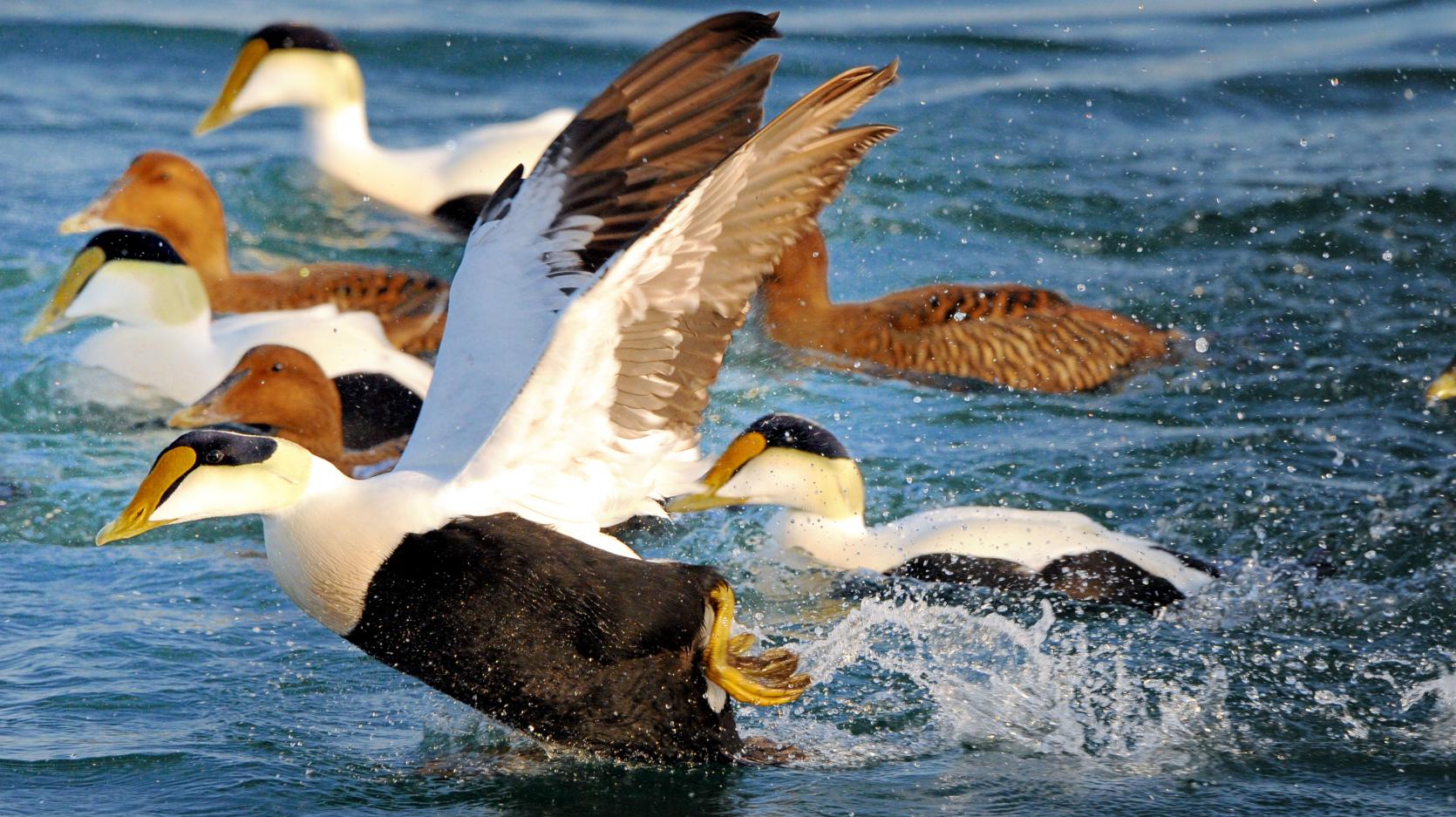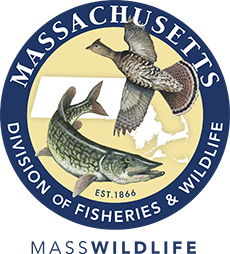- Division of Fisheries and Wildlife
Media Contact
Marion Larson, MassWildlife

2018 marks the 100th anniversary of the signing of the Migratory Bird Treaty Act, a critical piece of legislation that protects birds that migrate beyond US borders. To celebrate this occasion, MassWildlife joins National Geographic, the National Audubon Society, BirdLife International, and the Cornell Lab of Ornithology to celebrate 2018 as "The Year of the Bird." Birders can start the Year of the Bird off right with some unique winter birdwatching opportunities here in Massachusetts.
In the winter, interesting seabirds that spend most of the year as far north as the Arctic seek out the Massachusetts coast for milder temperatures. Among the birding community, certain coastal areas in Massachusetts are nationally known for the winter seabird flocks cruising the coast at this time of year. Some birders make an annual trek to the Massachusetts coast in winter to see colorful Harlequin Ducks, striking black-and-white patterned Eiders, Golden- eyes, Scoters and Long-tailed Ducks (aka Oldsquaws), aerobatic Gannets, diving Dovekies, Guillemots, and even Bald Eagles!
If you, your family, or friends want to give winter birding a try, connect with a bird club from your region by visiting MassBird.org. There you will find the websites of most of the birding clubs in Massachusetts with information on bird walks, events, and meetings. Most of these walks are free or very low cost.
In February and March, check out these two coastal birding events on the North Shore. Bring binoculars if you have them. There will be birders willing to let you peer through their binoculars and spotting scopes as well.
- Join Mass Audubon and the Parker River National Wildlife Refuge for the Merrimack River Eagle Festival in Newburyport and Amesbury on Saturday, February 17, 2018. This family-friendly event focuses on eagles, but you will see many other kinds of seabirds in the designated eagle spotting areas around the Merrimack River and Plum Island. Sign up for an eagle tour with bird experts who will help identify the birds you spot, engage in some special family activities, and see a live raptors presentation! Admission and most activities are free.
- Join the Cape Ann Chamber of Commerce for a Winter Birding Boat Trip on Saturday, March 10, 2018 from 8am–12pm. Come aboard the Privateer IV with 7 Seas Whale Watch for a chance to see loons, grebes, scoters, eiders, and other avian delights of the season along Cape Ann’s spectacular coastline. This is a wonderful opportunity for bird-lovers of all levels to visit Gloucester and to brave whatever weather winter brings. Participants may also be lucky enough to see some marine life as well! MassWildlife will be providing checklists of birds and some other wildlife related materials for participants. Space is limited so sign up now! Admission is $75.
If you do try winter birdwatching, be prepared for the cold! Winter wildlife watching is a great activity for friends and family, but it won’t be fun for long if you’re cold. Consider the old adage: “There’s no such thing as bad weather, just bad clothing choices.” Always prepare for the cold coastal temperatures and wind by dressing in layers of fleece or wool, wearing warm, sturdy boots, and ensuring your final outer layer provides wind protection such as rain or wind pants and jacket. Don’t forget a scarf, neck or face mask! Sunglasses (or clear safety glasses if it’s overcast) also provide wind protection. You may be totally unrecognizable, but you’ll be warm and comfortable as you search the curling waves and coastlines for birds and seals.
